Text
Due to comments that some of my posts may be ableist, I'm leaving this blog indefinitely inactive. As a disabled person, I tried my hardest to prevent things like this, but I've decided to suspend posting since I can't be confident incidents like this won't happen again. If any remaining posts happen to contain ableism, please let me know, and I'll delete them. Otherwise, this blog and all its material will stay up for archival purposes but not active. I'm deeply sorry for any people I may have hurt. To anyone thinking of this as an overreaction, I'm doing this of my own volition and not out of coercion. Thank you, and goodnight.
0 notes
Text

This post gives you five great reason to start running. Of course there are many many more health benefits of running.
10 notes
·
View notes
Text
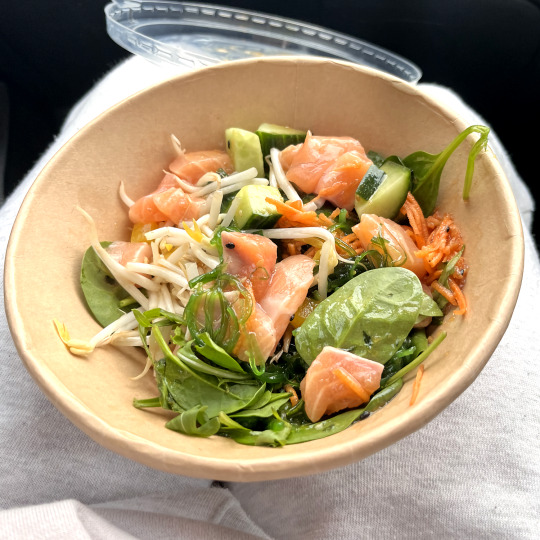
I took a bite before taking the picture… whoopsies.
Poke bowl! Salmon sashimi, spinach & rocket, sprouts, cucumber, carrot, seaweed salad, pickled radish, and soy sauce and sesame dressing!
0 notes
Text
Some Tips I've Found Helpful For Working Out With Mental Illness
Because a lot of mental illnesses can rob people of the focus or motivation to go to the gym, there are some tips that I have—in my own personal experience—found helpful for staying active and keeping a semi-consistent workout routine through mental illness.
Having someone you know keeping you on track: Whether you call them a workout buddy, an accountability buddy, or another name, having someone to work out with you, or at the very least, remind you to work out, can give you the push you need to get started.
Investing in a gym membership: Going to the gym is ideal because you're in a space that requires you to do something active, so going to the gym is incredibly helpful. (I recommend planning what you'll do so you don't flounder too much.)
Signing up for classes: Ditto, with the added benefit of having instructions and/or an instructor or trainer to keep you on track.
Finding exercises you can do easily: There are many videos on YouTube for exercises you can do in bed or sitting down. It may be easier to start an exercise knowing it's simple to get ready.
Setting smaller goals: Sometimes, it's daunting to set the expectation of doing a full workout, especially when you're in a low mental state, but you don't have to push yourself to go all the way. If you can only convince yourself to do one repetition of your set instead of two or three, getting one done may motivate you to continue. And failing that, one is better than none.
Ultimately, sometimes we have to force ourselves to do unpleasant things we don't want to do for our health or well-being. But it's crucial to dig into your reasons for wanting to be healthy and pull yourself up to the task regardless instead of waiting to 'feel like it.' And I won't say that exercise is the only tool you need to combat mental illness; far from it. But I believe keeping a consistent exercise schedule improves one's overall mental state. Live well, everyone.
#health and exercise#health and fitness#workout motivation#fitspiration#fitness tips#workout tips#mental health
11 notes
·
View notes
Text

Most people fail, not because of lack of desire, but, because of lack of commitment.
125 notes
·
View notes
Text
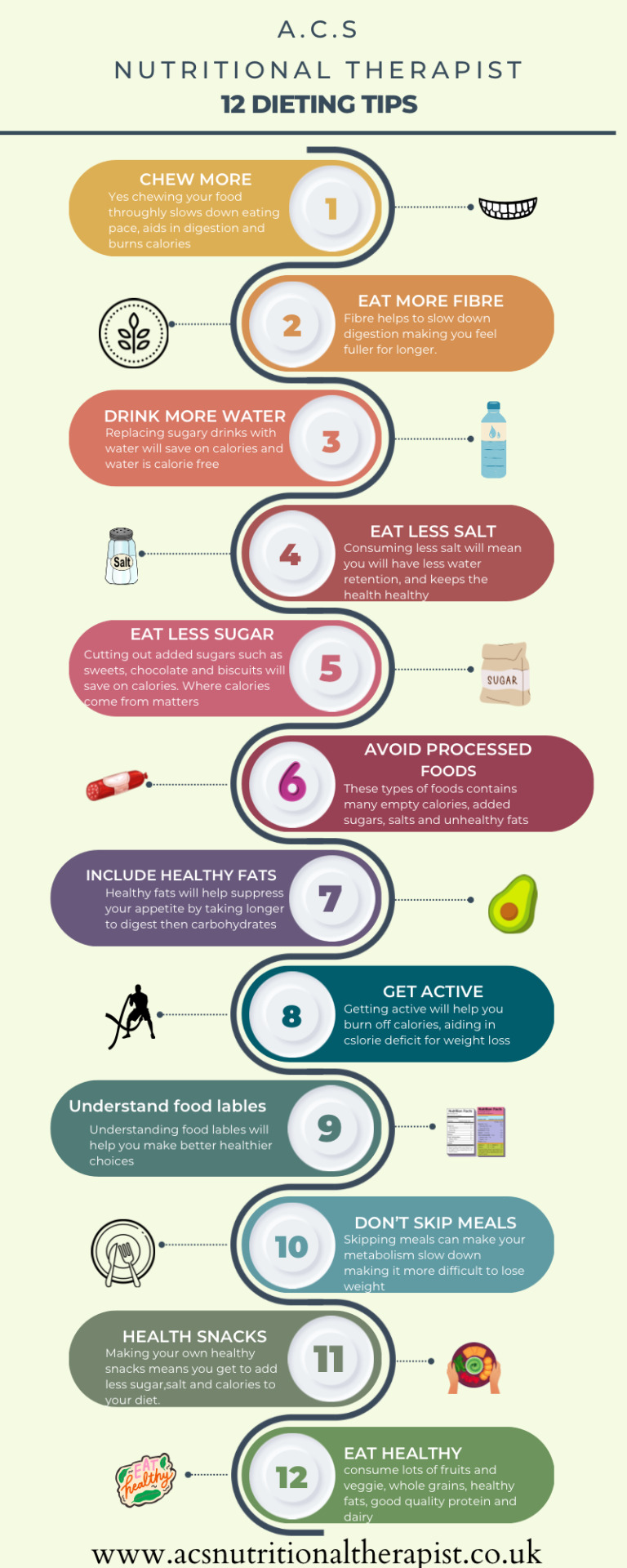
64 notes
·
View notes
Text

It's ok even if you're not the best, as long as you are doing your best.
#health & fitness#motivating quotes#motivation#workout motivation#health and fitness#health and exercise#fitblr#fitspiration
107 notes
·
View notes
Photo
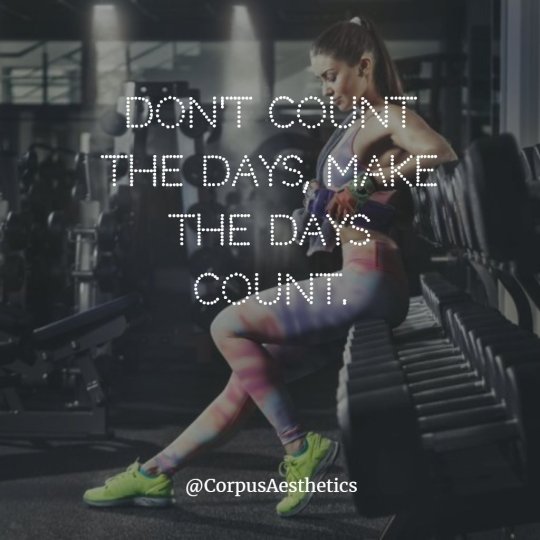
Don’t count the days, make the days count.
#motivational quotes#workout motivation#health and fitness#health and exercise#fitspiration#fitblr#fitspo
22 notes
·
View notes
Text
I've found the exact same feelings! In fact, I've felt more liberated to treat myself occasionally because eating better and exercising more means a treat won't hurt. Besides, I've learned to enjoy many more foods I wouldn't have considered before this journey. (Yes, I'm one of those people who likes salad now.)
That's the best part of fitness and healthy living. You get to create your own joy in the process.
losing weight doesn't have to mean giving up the things you enjoy.
you can still eat snacks and desserts and cake.
you can still go to restaurants and bars with your friends.
you can still drink soda, juice, and cappucinos.
it's all about moderation. you can do all of these things you enjoy, just be mindful. listen to your body. eat when you're hungry, even eat to indulge sometimes. you can give yourself room to eat or drink things you enjoy even if they're not the healthiest option for you. just note it and acknowledge the impact it has on your meals, your fullness, your macro or calorie intake (if you choose to track). i find that i don't feel bad having a slice of cake when i know i've been consistent and when i know i'm not going to eat so much of it that i'll feel sick.
giving up specific foods, food groups, or social outings that you enjoy is going to make this journey a lot harder and a lot less sustainable.
plus, think about all the things you're gaining on your weight loss journey. you're gaining discipline, confidence, strength - muscular and otherwise. you're gaining a new love for fitness, or sports, or walking in your neighborhood. you're gaining a new love for foods you hadn't tried before, for smoothies, for healthy, vegetable-filled meals that taste delicious. you're challenging yourself and you're growing because of it. you're gaining all of these wonderful things while paving the road to the new you.
losing weight can add so much to your life without giving up the things you enjoy. for me, that makes it all the more worthwhile.
140 notes
·
View notes
Text
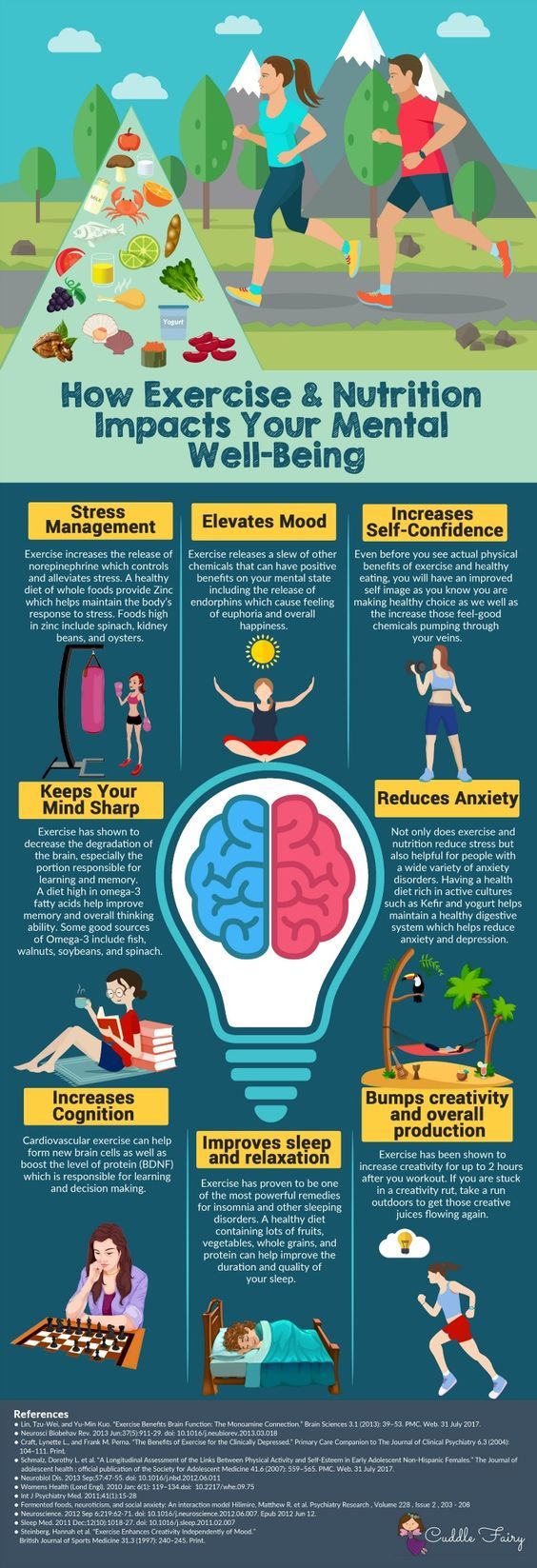
Diet & Exercise Tips
108 notes
·
View notes
Text
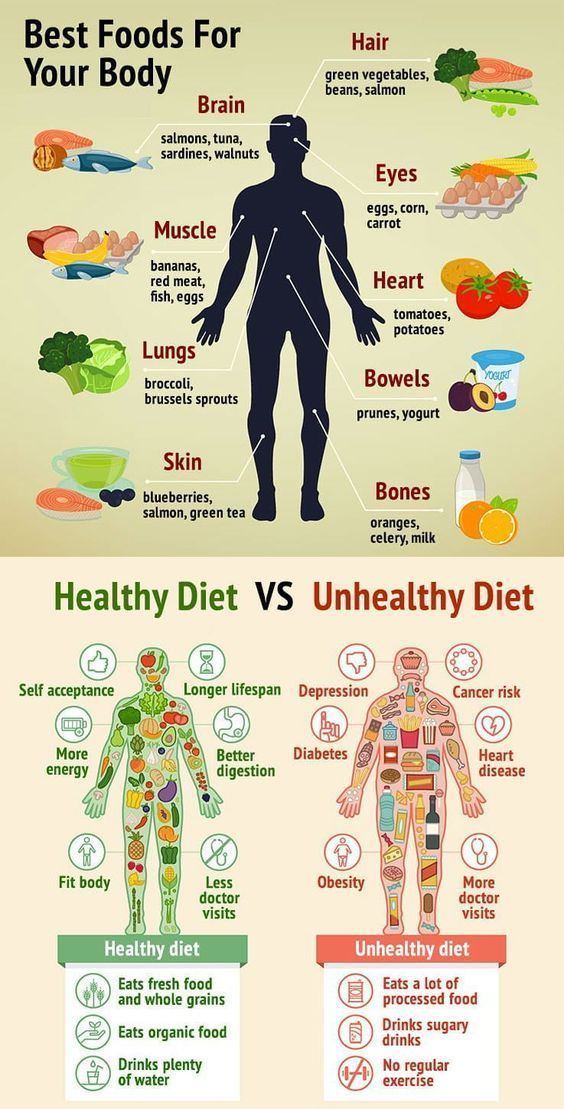
#healthy eating#health and fitness#health and wellness#health and nutrition#health and wellbeing#only thing I disagree with is that eating organic really isn't necessary in most cases
996 notes
·
View notes
Text

19K notes
·
View notes
Text

198 notes
·
View notes
Text
Many people in ED recovery spaces tend to talk about how people recovering from EDs should be allowed to be fat, that they should be allowed to gain weight, that it's a natural and healthy part of healing, and that whatever body size their mental health is best at is okay. And I fully agree with the message and think it's important to spread it.
However, we also need to talk about how it's okay for people recovering from restrictive EDs to stay skinny or, in certain circumstances, lose weight as their relationship with food improves and they start eating healthily again.
Regarding restrictive eating disorders, only anorexia nervosa has BMI/weight loss specifically as a diagnostic requirement (significant weight loss is still a requirement for atypical anorexia). People suffering from bulimia, ARFID, or EDNOS/OSFED can restrict food to an unhealthy degree and stay out of the 'underweight' range.
I'll use myself as an example here. For a long time, I've struggled with ARFID. Most of the time, I'd only eat one meal, which was dinner, the only one I couldn't avoid. I did lose weight during my struggles with the disorder; despite all that restriction and weight loss, I was always at the upper end of 'healthy weight' or lower end of 'overweight' even as I was malnourished to the point that the growth spurts I was supposed to have during my teen years never happened (presumably because of my generally unhealthy food choices—when I did eat at all—and lack of exercise.)
I decided to take up fitness, and because of that, I regained my appetite, and my ARFID entered remission. Guess what? I started losing more weight.
You understand what I'm saying here, right? Some people recovering from restrictive EDs will stay skinny even when they become healthy. Some people with restrictive EDs will lose weight when they become healthy.
And guess what? People recovering from EDs who stay skinny are constantly criticized in recovery spaces, have their progress and perceptions of themselves doubted, and are seemingly pressured into gaining more weight than they need to, so people can 'see they're recovering.' Even professionals will refuse to believe someone losing weight/not gaining much weight is 'actually recovering' from their ED.
Let people recovering from EDs stay skinny. Let people recovering from EDs lose weight in their recovery. Let people with EDs recover without gaining more weight. What should matter to you is their relationship with food improving and getting the amount of food they need, not how much they weigh.
If you can't believe that a skinny person can be recovered from their ED, then you care more about your own opinions than helping people recover from the most fatal class of mental disorders to exist.
If anyone's about to say, "You said it shouldn't matter how much someone weighs, but you make such a big fuss out of the fact that people recovering from EDs should be able to be thin without being judged," that's the point. Because the judgment and scrutiny already exist among recovery spaces and need to be called out by name.
And yes, I acknowledge that people may fat-shame someone for gaining weight, even if it's in ED recovery. But two things can be true at once.
5 notes
·
View notes
Text

#workout motivation#health and fitness#health and exercise#fitspiration#fitblr#fitspo#Become harder to kill y'all!!!!!
368 notes
·
View notes
Text
Here's a tip for getting exercise in with restricted mobility: if you're unable to use your legs for whatever reason, pedaling using your arms (however you wish to do so) is a fantastic exercise, sometimes even working up more of a sweat than ordinary biking, and it works to strengthen many muscles in your upper body, namely, your chest, arms, back, shoulders, and core. Don't be discouraged if you want to get into shape but can't use your legs!
If you can't find a machine or a method that works for you or can't afford one, shadowboxing is another excellent alternative, which doesn't require any special equipment.
Live your best life regardless of what limits you may be facing!
0 notes
Text
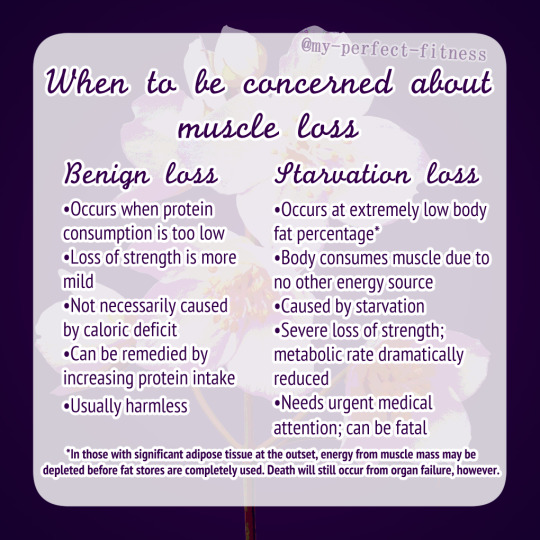
Let's get serious. I hear a lot of misinformation about the body's 'self-cannibalization' survival response, which can be extremely dangerous. Education is the best defense we have against fearmongering and falsehoods.
Be safe, take care of yourselves, and be healthy.
Addition: though the majority of information on the starvation side of the graph applies to both acute and long-term starvation, the addendum refers to acute starvation only.
I've done my best research to ensure the information herein is correct, but I'm not perfect; if you see something incorrect, say something.
#health facts#psa#health and wellbeing#health and fitness#health and exercise#health and weight loss#awareness#tw starvation#ask to tw#ask to tag#even I felt uneasy making this#mine
1 note
·
View note